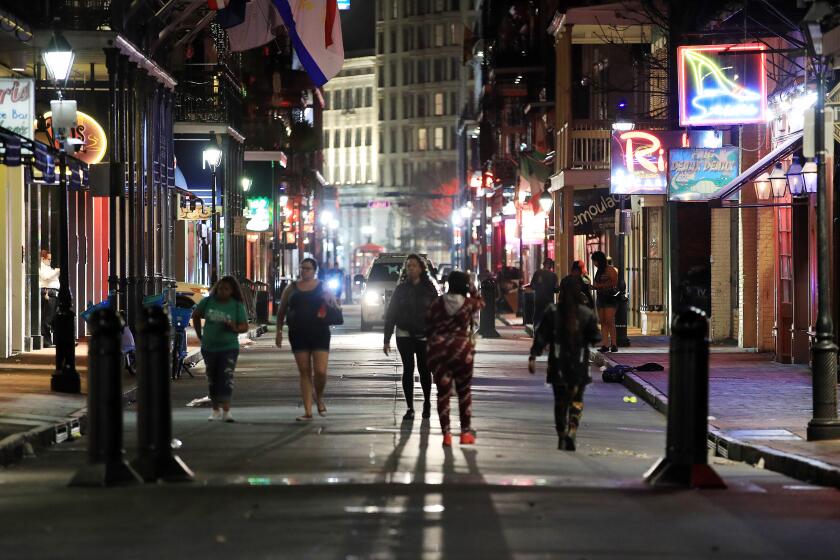New Orleans social worker who died at 39 did not have coronavirus, test results show
NEW ORLEANS — When Natasha Ott, a 39-year-old social worker originally from Claremont, died on March 20, loved ones suspected she died of COVID-19.
Ott, who lived in New Orleans, had suffered symptoms generally associated with coronavirus infection in the days before her death. Her job exposed her to strangers from disadvantaged communities in New Orleans, a city that’s become a hotspot in the outbreak.
Ott was tested for COVID-19, but died before she received the results — which came back negative.
So, did she have the virus?
Her doctor suspected the first test was a false negative, and requested a retest. There’s little public data on false-negative rates for COVID-19 tests, but research in China indicates it may be about 30%.
On March 25, five days after her death, Ott’s second round of test results came back — again negative.
Ott’s relatives held an online memorial service on Sunday. Her boyfriend, who visited her before her death, was still self-quarantined this week, without symptoms, according to Ott’s sister, Emily Coalson Stamets, who lives in the San Diego area.
Results of Ott’s March 26 autopsy were still pending this week and not expected for another month, according to Jason Melancon, a spokesman for the New Orleans coroner’s office.
“Until then, we don’t want to speculate,” about her cause of death, Coalson Stamets said by email Wednesday.
Coalson Stamets said that Ott, who had served in the Peace Corps in Togo, had suffered giardia, an intestinal infection, but that “would not have caused these symptoms or sudden death. There are no other conditions that we’re aware of.”
On Twitter, some critics said it was premature for the press to highlight Ott’s case, and suggested that some in the media were — wittingly or not — overhyping the dangers from the pandemic.
But there have been plenty of other COVID-19 cases in Louisiana in recent days, 5,237 in 60 of the state’s 64 parishes. So far, 239 people have died, more than half in the New Orleans area, including a 17-year-old high school football player whose father insisted he didn’t have the virus, although the coroner’s office confirmed he did.
As many as 25% of people infected with COVID-19 may not show symptoms, the director of the Centers for Disease Control and Prevention warned last week.
As a result, the agency is considering broadening its recommendations on who should wear masks.
Louisiana’s governor forced historic bars and restaurants to close this week, leaving many unsure when — or if — they will reopen.
New Orleans hospitals have set up special areas to treat all arriving patients, not just those with COVID-19 symptoms, because the virus has become so widespread and testing was still limited this week. Those who arrive are called “PUIs,” short for “people under investigation” for COVID-19.
“We have to assume they have it,” said Dr. David Mushatt, chief of infectious diseases at Tulane University who was quarantined this week after being exposed to two patients who sought treatment for infections and later tested positive for the virus.
Gov. John Bel Edwards, a Democrat, said the state could run out of hospital beds as soon as Sunday, and National Guard troops were setting up a temporary 3,000-bed hospital in the city’s convention center this week.
More to Read
Sign up for Essential California
The most important California stories and recommendations in your inbox every morning.
You may occasionally receive promotional content from the Los Angeles Times.












